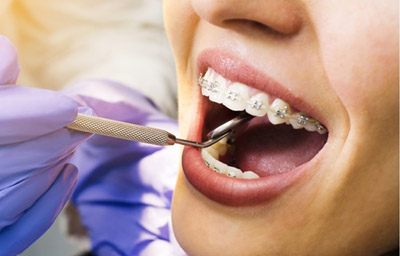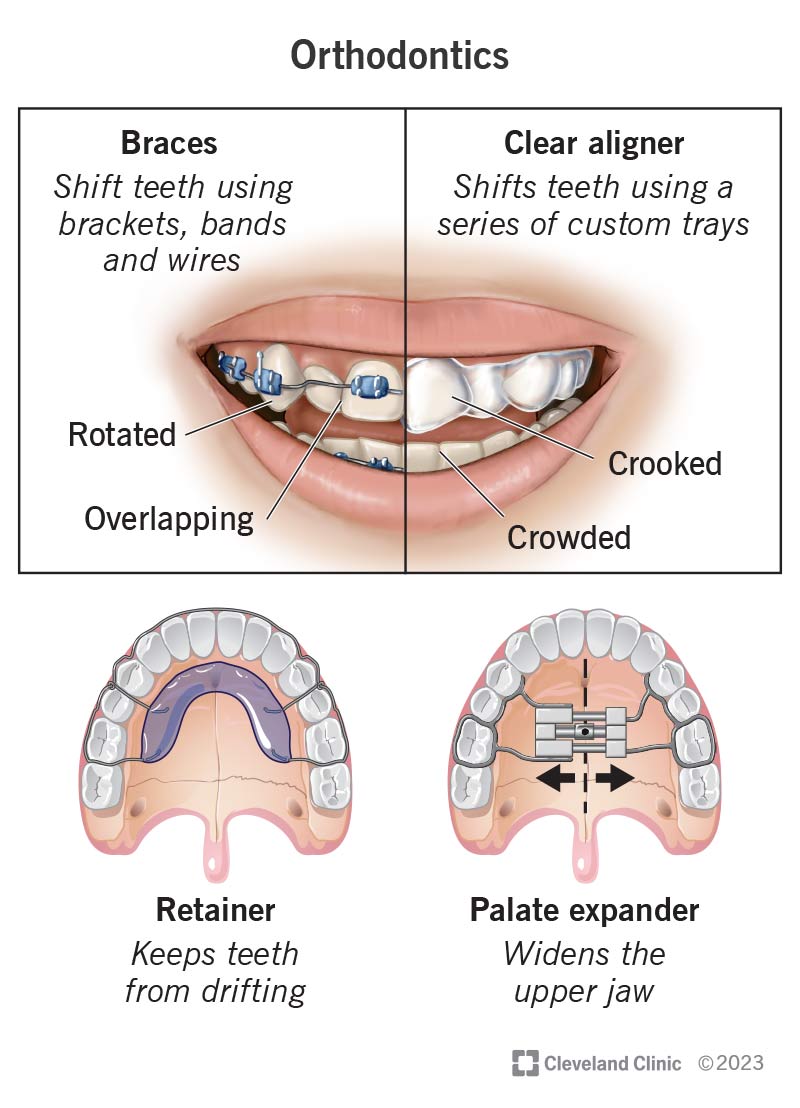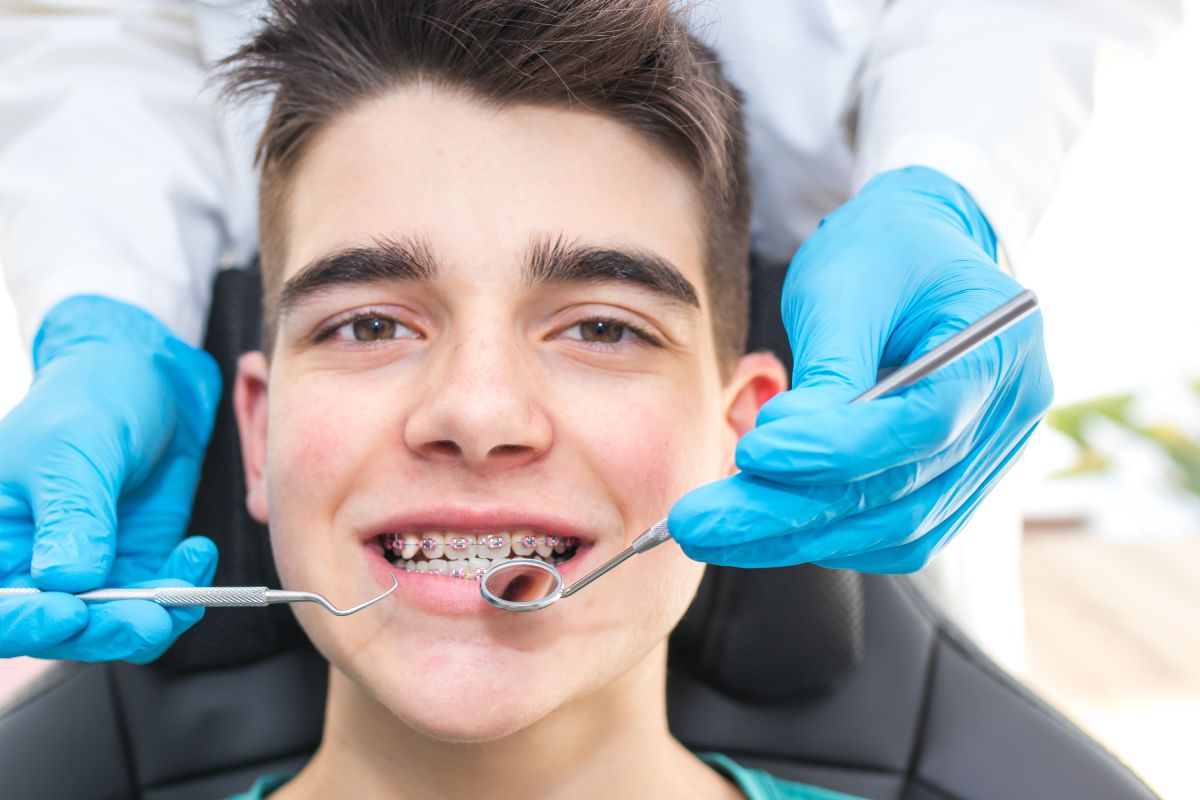All About Causey Orthodontics
All About Causey Orthodontics
Blog Article
Causey Orthodontics Can Be Fun For Anyone
Table of ContentsIndicators on Causey Orthodontics You Should KnowThe 7-Minute Rule for Causey OrthodonticsIndicators on Causey Orthodontics You Need To KnowCausey Orthodontics Fundamentals ExplainedLittle Known Questions About Causey Orthodontics.Getting My Causey Orthodontics To WorkOur Causey Orthodontics Diaries
What is the distinction between a dental practitioner and an orthodontist? To respond to a concern that is usually asked, both dental practitioners and orthodontists help patients get much better dental health, albeit in different means. It helps to bear in mind that dental care is a rather broad scientific research with different clinical expertises. All dental practitioners, including orthodontists, deal with the teeth, gums, jaw and nerves.
You can believe of both physicians who deal with gum tissue and teeth problems. The main distinction is that becoming an orthodontist requires a specific specialty in dealing with the imbalance of the teeth and jaw.
Things about Causey Orthodontics
An orthodontist is a dentist that has undertaken training to focus on the diagnosis, avoidance and treatment of irregularities in the jaw and teeth. Their training includes fixing these existing problems. They can additionally identify possible issues in teeth alignment that may establish when problems are left neglected. Orthodontists can aid people of all ages.
This consists of all the essential education to come to be a basic dental expert. According to the American Student Dental Association (ASDA), it means you will certainly need to have either a Medical professional of Medicine in Dentistry (DMD) or a Doctor of Oral Surgical Procedure (DDS). In various other words, orthodontists require to complete dental college and afterwards acquire an orthodontics specialty education and learning.
Some orthodontists additionally get their masters in craniofacial biology. orthodontist expert (http://www.gobarstow.com/united-states/gainesville/dentist/causey-orthodontics-15289). Several oral schools offer limited orthopedic training and instruction, which is why general dentists need to go to orthodontic institution after graduation. Orthodontic residency programs provide extensive training for this kind of oral field of expertise. These programs focus on two specific locations or self-controls: Dentofacial Orthopedics: This study concentrates on leading teeth and jaw growth.
Everything about Causey Orthodontics

 These consist of device such as dental braces, retainers and Invisalign. So, what does an orthodontist do, and what do they concentrate on? The overall goal of an orthodontist is to boost a person's bite. Not everybody is born with straight teeth, and an orthodontist will certainly make certain that clients get uniformly spaced straight teeth.
These consist of device such as dental braces, retainers and Invisalign. So, what does an orthodontist do, and what do they concentrate on? The overall goal of an orthodontist is to boost a person's bite. Not everybody is born with straight teeth, and an orthodontist will certainly make certain that clients get uniformly spaced straight teeth.
An Unbiased View of Causey Orthodontics
The American Association of Orthodontists advises your first check up by age 7. You'll need to see your orthodontist if you have a misalignment in your teeth, likewise referred to as malocclusion. If you notice uneven bite patterns, a slightly irregular jaw, or when your teeth are jammed, you will likely require orthodontic treatment.
In addition, we offer flexible treatment schedules, versatile settlement alternatives and a fun, pleasurable experience.
An orthodontist is a dental expert trained to diagnose, stop, and treat teeth and jaw irregularities. Orthodontists function with people of all ages, from youngsters to adults (https://www.whatsyourhours.com/usa/professional-services/causey-orthodontics).
Getting My Causey Orthodontics To Work
Malocclusion, or misaligned teeth, can lead to dental concerns, consisting of dental caries, gum disease, and tough or excruciating chewing. Yet not everyone is birthed with straight teeth. If you have a poor bite or huge areas in between your teeth, you may wish to speak with a dental professional focusing on orthodontic treatment.
(Image Credit: DigitalVision/Getty Images) Orthodontists use fixed and detachable oral devices, like braces, retainers, and bands, to alter the position of teeth in your mouth. Orthodontic therapy is for dental problems, including: Misaligned teethBite troubles, like an overbite or an underbiteCrowded teeth or teeth that are as well much apartJaw misalignmentThe objective of orthodontic therapy is to boost your bite.
Getting The Causey Orthodontics To Work

All orthodontists are dentists, yet not all dental professionals are orthodontists. Orthodontic residency programs offer intensive, focused instruction for dental experts. They concentrate on two locations: Just how to appropriately and safely move teeth Just how to effectively lead advancement in the teeth, jaw, and faceOnce an orthodontist has actually completed training, they have the choice to become board certified.
Malocclusion leads to tooth overcrowding, a misshapen jaw, or uneven bite patterns. Malocclusion is generally treated with: Your orthodontist connects steel, ceramic, or plastic square bonds to your teeth.
The 7-Second Trick For Causey Orthodontics
If you have only small malocclusion, you may have the ability to utilize clear braces, called aligners, as opposed to conventional dental braces. Some individuals need a headgear to help relocate teeth into line with pressure from outside the mouth. After braces or aligners, you'll need to use a retainer. A retainer is a custom tool that keeps your teeth in position.
Report this page